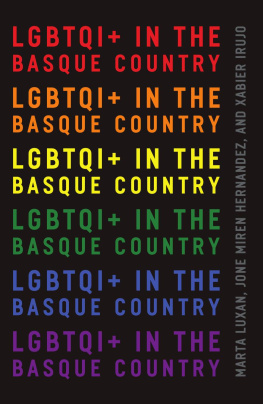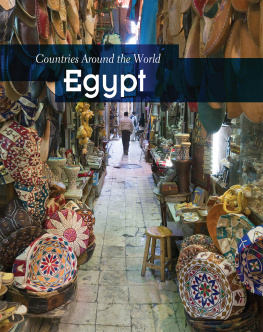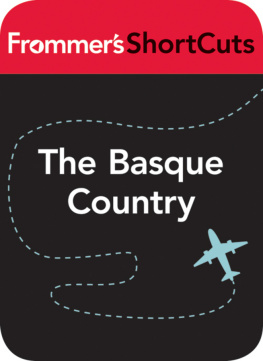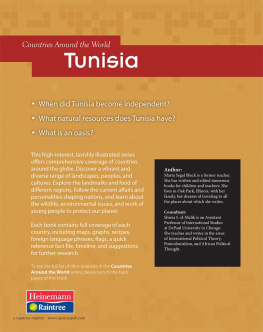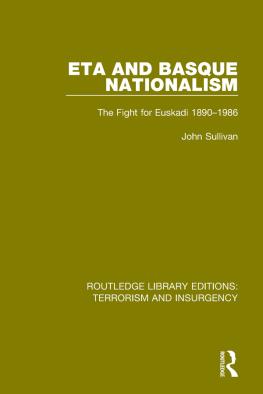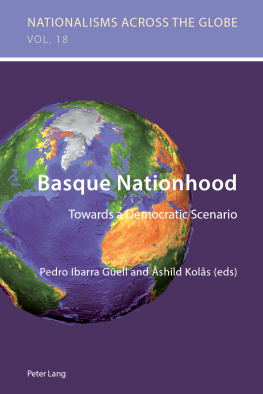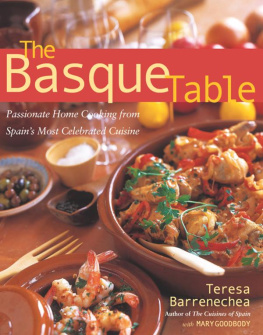Marta Luxán - LGBTQI+ in the Basque Country
Here you can read online Marta Luxán - LGBTQI+ in the Basque Country full text of the book (entire story) in english for free. Download pdf and epub, get meaning, cover and reviews about this ebook. City: Reno, year: 2020, publisher: Center for Basque Studies, University of Nevada, genre: Science. Description of the work, (preface) as well as reviews are available. Best literature library LitArk.com created for fans of good reading and offers a wide selection of genres:
Romance novel
Science fiction
Adventure
Detective
Science
History
Home and family
Prose
Art
Politics
Computer
Non-fiction
Religion
Business
Children
Humor
Choose a favorite category and find really read worthwhile books. Enjoy immersion in the world of imagination, feel the emotions of the characters or learn something new for yourself, make an fascinating discovery.
- Book:LGBTQI+ in the Basque Country
- Author:
- Publisher:Center for Basque Studies, University of Nevada
- Genre:
- Year:2020
- City:Reno
- Rating:4 / 5
- Favourites:Add to favourites
- Your mark:
- 80
- 1
- 2
- 3
- 4
- 5
LGBTQI+ in the Basque Country: summary, description and annotation
We offer to read an annotation, description, summary or preface (depends on what the author of the book "LGBTQI+ in the Basque Country" wrote himself). If you haven't found the necessary information about the book — write in the comments, we will try to find it.
LGBTQI+ in the Basque Country — read online for free the complete book (whole text) full work
Below is the text of the book, divided by pages. System saving the place of the last page read, allows you to conveniently read the book "LGBTQI+ in the Basque Country" online for free, without having to search again every time where you left off. Put a bookmark, and you can go to the page where you finished reading at any time.
Font size:
Interval:
Bookmark:
L G B T Q I + i n t h e
B a s q u e C o u n t r y
L G B T Q I + i n t h e
B a s q u e C o u n t r y
L G B T Q I + i n t h e
B a s q u e C o u n t r y
L G B T Q I + i n t h e
B a s q u e C o u n t r y
L G B T Q I + i n t h e
B a s q u e C o u n t r y
L G B T Q I + i n t h e
B a s q u e C o u n t r y Marta Luxan, Jone Miren Hernandez, and Xabier Irujo
LGBTQI+ IN THE BASQUE COUNTRY
Basque Politics Series No. 17


LGBTQI+ IN THE BASQUE COUNTRY
MARTA LUXAN, JONE MIREN HERNANDEZ,
AND XABIER IRUJO
CENTER FOR BASQUE STUDIES
UNIVERSITY OF NEVADA, RENO
2020
Tis book was published with generous fnancial support from the Basque Government.
Center for Basque Studies
University of Nevada, Reno
1664 North Virginia St,
Reno, Nevada 89557 usa
http://basque.unr.edu
Copyright 2020 by the Center for Basque Studies and the University of Nevada, Reno Series: Basque Politics Series No. 17
Series Editor: Xabier Irujo
ISBN-13: 978-1-949805-25-3
All rights reserved.
Cover Design by Derek Tornton
LIBRARY OF CONGRESS CATALOGING-IN-PUBLICATION DATA
Names: Irujo Ametzaga, Xabier, editor. | Luxn Serrano, Marta, editor. | Miren Hernandez, Jone, editor.
Title: LGBTQI+ in the Basque Country / edited by Xabier Irujo, Marta Luxan, Jone Miren Hernandez.
Description: Reno, Nevada : Center for Basque Studies Press, 2020. | Series: Conference papers series ; no. 18 | Includes bibliographical references. | Summary:
Homosexuality has historically been considered an aberration by most religions and a nefandum activity typifed as a crime of sodomy in most countries of the world. Homosexuality was persecuted and punished in various ways and continues to be so in too many places around the world. Te Charter of Fundamental Rights of the European Union establishes in article 21 that all discrimination shall be prohibited, included that based on sexual orientation, but the declaration does not mention the right to freely hold the persons own gender identity. We are certainly still far from living in a world in which the basic rights of humanity are fully respected. Tis book, fruit of the collaboration of the Center for Basque Studies of the University of Nevada and the Master in Feminist and Gender Studies of the University of the Basque Country, constitutes the frst monograph written in English on this subject in relation to the Basque case. It tries to give response to the existing void around the issues of historical, legal and political, but also social and cultural reality, problems and challenges of the LGBTQI+ collective in the Basque Country-- Provided by publisher.
Identifers: LCCN 2020031623 | ISBN 9781949805253 (paperback) Subjects: LCSH: Sexual minorities--Spain--Pais Vasco--History. | Gender identity--Spain--Pais Vasco--History. | Homosexuality--Spain--Pais Vasco--History. | Sexual minorities
-France--Pays Basque--History. | Gender identity--France--Pays Basque--History.
| Homosexuality--France--Pays Basque--History.
Classifcation: LCC HQ73.3.S66 P35 2020 | DDC 305.30946/6--dc23
LC record available at https://lccn.loc.gov/2020031623
Printed in the United States of America
Contents
Prologue........................................................vii 1. Te Struggle for LGBTQI+ Rights at the International Level by Xabier Irujo 1
2. Te Legal Confguration of Sexual Orientation and Gender Identity in the Legislation of the Autonomous Community of the Basque Country by AndreaBertomeu Navarro................................................. 23
3. Queer Discourses And Practices In Te Basque Feminist Movement by MaraRuiz Torrado.................................................... 35
4. Fast, Slow, and Still Waters: An Overview of LGBTQI+ Politics in the Southern Basque Country by Jokin Azpiazu Carball o............................. 57
5. Intersexualities: Understanding Bodies Beyond Binary Categories from a Biographical Perspective by Mara Gmez.............................. 77
6. Lesbianism and the Political Subject of the Feminist Movement in the Basque Country (19771994) by Maialen Aranguren.............................99
7. Tensions Between Body and Soul: Homosexuality(s) in the Basque Country During the First Francoism by Abel Daz............................. 117
8. LGBTQI+ Lives in Basque Contemporary Novels by Ibon Egaa Etxeberria .. 139
Index......................................................... 163
About the Authors............................................... 169
Prologue
In the fall of 2018, Xabier Irujo, director of the Center for Basque Studies at the University of Nevada, Reno, proposed publishing a compilation of LGBTQI+
related research conducted in, or about, the Basque Country.Tis idea launched the adventure upon which the Center and the Master in Feminist and Gender Studies of the Universidad del Pas Vasco/Euskal Herriko Unibertsitatea (UPV/EHU) would embark, leading us to a variety of harbors.
Te idea was to create a common place where researchers from multiple disciplines and varied approaches could shed light on LGBTQI+
issues in the Basque context.We were also particularly interested in building bridges between the LGBTQI+ movement and the academic world, and in publishing a compilation of articles that refect the situation in the Basque Country. Tis book is one of the fruits of our collaboration. Its main goal is to encourage both more study and action, as well as to highlight the need to generate written references related to LGBTQI+ topics.
Tis collection does not represent all of the research conducted in the Basque study of LGBTQI+ issues, nor all of the people working on them, whether through activism or academics. It is, rather, a snapshot, including diferent perspectives, markedly from university researchers, but also those with obvious connections to activism. It is, therefore, an invitation to continue to discuss, rethink, and write more about LGBTQI+ issues from diverse shores, harbors, and seas.
In this collections eight articles, legislative issues, the mission of social movements and of their subjectivities, and a historical perspective on lesbianism and homosexuality are covered. Additionally, an attempt to understand bodies beyond binary categories is made, and an examination of cultural expressions is presented through literary analysis.
viii
LGBTQI+ IN THE BASQUE COUNTRY
In the frst article, Irujo ofers a historical and international view of the rights of the LGBTQI+ community from the eighteenth century to the present day. Among other issues, the author highlights the fact that the World Health Organization declassifed homosexuality as a disease in 1990, just thirty years ago. He also outlines the historical development of legislation relating to sexual freedoms and the recognition of civil rights to same-sex couples in both Europe and the United States.
Next, Andrea Bartomeu sheds light on legislation as it relates to sexual orientation and gender identity in the Autonomous Community of the Basque Country. In addition to a comprehensive review of the regional (autonomous) regulations, the author presents a critical assessment of the scope and adequacy of the current regulations. Bartomeu highlights the need to bring legislation into line with a complex and kaleidoscopic reality that faces specifc challenges. She proposes incorporation of international recommendations to ensure both that transsexuality is not treated as pathological and the efective protection of the rights of transgender people. In this regard, one of the crucial issues presented is the right to self-determination of ones own gender. Finally, despite its brevity, her discussion on LGBTQI+ asylum seekers is particularly relevant.
Next pageFont size:
Interval:
Bookmark:
Similar books «LGBTQI+ in the Basque Country»
Look at similar books to LGBTQI+ in the Basque Country. We have selected literature similar in name and meaning in the hope of providing readers with more options to find new, interesting, not yet read works.
Discussion, reviews of the book LGBTQI+ in the Basque Country and just readers' own opinions. Leave your comments, write what you think about the work, its meaning or the main characters. Specify what exactly you liked and what you didn't like, and why you think so.

